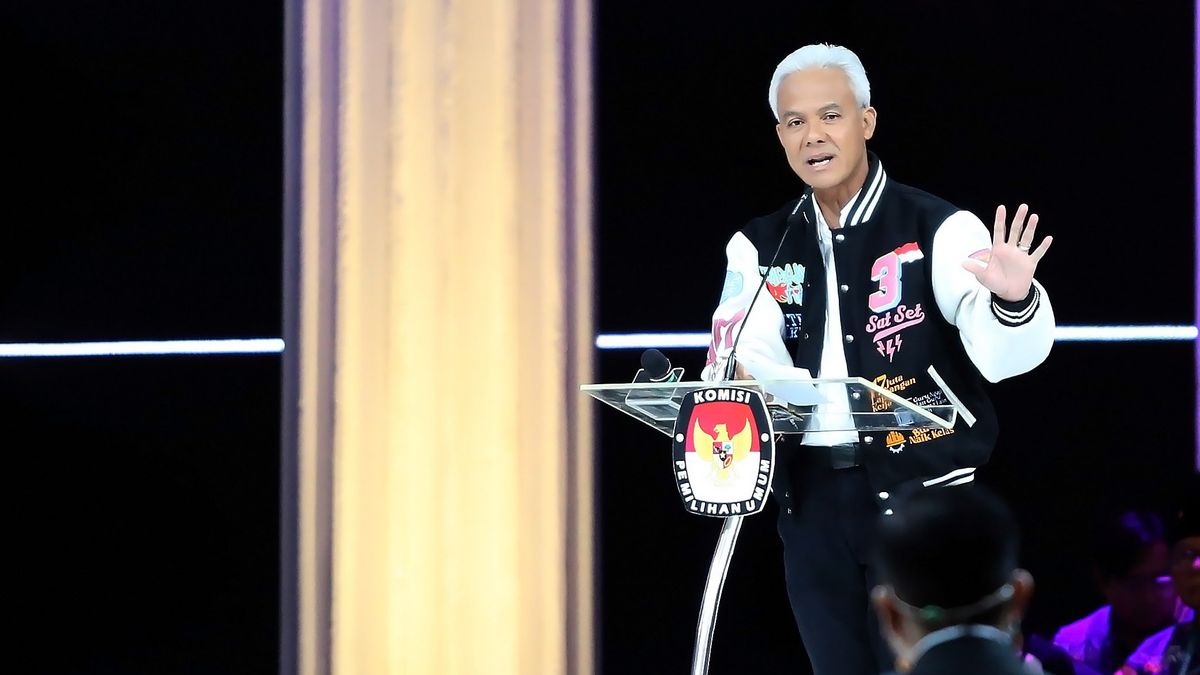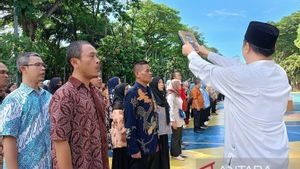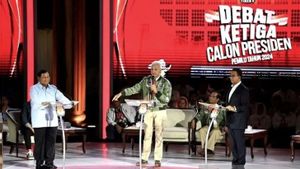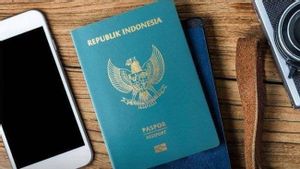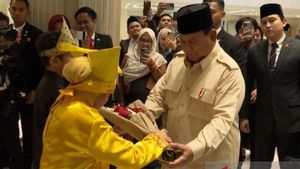"So, this liberalization that must be stopped, in my opinion, must also be balanced with proportionality to which one can afford, and which one is less fortunate," said Ganjar Pranowo.
Ganjar Pranowo's statement about the desire to stop the liberalization of education he made during the fifth debate of the 2024 presidential election at the Jakarta Convention Center, Sunday night (4/2/2024).
The presidential candidate (candidate) number three responded to Anies Baswedan's question about the issue of higher education in Indonesia, one of which was about the high cost of single tuition fees (UKT).
Education is one of the themes discussed in the fifth debate of the 2024 presidential election in addition to social welfare, culture, information technology, health, employment, human resources, and inclusion.
The fifth debate for the 2024 presidential election is the final debate 10 days before voting day on February 14.
Anies Baswedan's question about UKT which is high cannot be separated from the issues that have been being discussed recently. A number of students at the Bandung Institute of Technology (ITB) are threatened with not being able to continue their studies because they are still in arrears in UKT costs. In the midst of this situation, the rectorate provided an option to use online loan services (pinjol) to pay off tuition fees.
This option, of course, invites negative reactions from various groups, because it is considered burdensome for poor students.
Eliminating education liberalization is considered a mistake so that higher education can be accessed by all people. However, what is meant by the liberalization of education?
Quoting Dirasat Islamiah: The Journal of Islamic Studies entitled Liberalization and Education Commercialization by Iskandar Fellang from the Islamic University of Makassar, liberalization of education is an effort to adapt education to the flow of globalization. This has an impact on the commercialization of education, namely education being sold and used as a commodity to reap profits.
But in general, liberalization of education is an educational system as a commodity that is traded. In this system, education operations are financed independently by the organizers which causes education commercialization.
The practice of liberalizing education provides a number of negative impacts, including education becoming more expensive and considered luxury goods that are difficult to reach by the wider community. In addition, this can also cause a gap in the quality of education, as well as the opportunity to get education to be narrower and discriminatory.
Law Number 12 of 2012 concerning Higher Education, said Ubaid Matraji, the National Coordinator of the Indonesian Education Monitoring Network (JPPI) has changed the status of state universities (PTN) to an autonomous public legal entity or called PTN Legal Agency (PTNBH).
Thus, campuses are given full rights to commercialize in managing education. As a result, said Ubaid, students who are less and unable to experience difficulties in accessing higher education due to the amount of tuition money set by the campus.
"So what activities have the potential to generate profits, are allowed, including withdrawing money per semester at any amount," said Ubaid Matraji.
According to a number of sources, the practice of liberalizing education does not only occur at the tertiary level. Educational Liberalization can also be seen from schools that can only be enjoyed at an expensive cost of education. For example, International Standard Schools (SBI), which can only be enjoyed by financially capable people.
The Education and Teacher Association (P2G) regrets that the contents of the presidential candidate debate do not touch and provide solutions to fundamental education issues, including regarding education liberalization.
According to the Head of the Advocacy Division of the Education and Teacher Association (P2G) Iman Zanatul Haeri, the rise of lending for students was due to the liberalization of campuses in the form of PTN BH.
SEE ALSO:
The existence of PTN-BH is still an obstacle to accessing education for the weak economy. This must be addressed, said Iman.
"But again the presidential candidates did not mention this fundamental issue in the debate," said Iman disappointed.
The English, Chinese, Japanese, Arabic, and French versions are automatically generated by the AI. So there may still be inaccuracies in translating, please always see Indonesian as our main language. (system supported by DigitalSiber.id)
